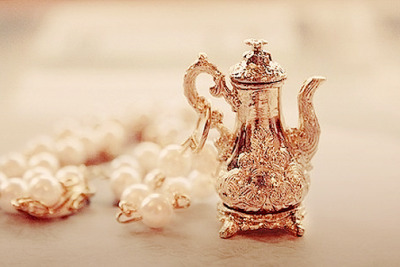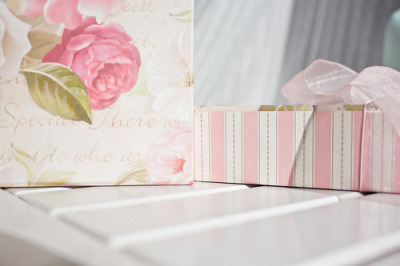بسم الله الرحمن الرحيم
In the name of Allah, the Most Gracious, the Most Merciful,
THE DISTINCT MUSLIM PERSONALITY
The Messenger of Allah (صلى الله عليه وسلم) said to the Companions:
“You are on the way to meet your brothers, put on nice dress and fix your saddles so you appear distinct among people as a beauty mark [on a beautiful face]. Allah likes neither roughness nor rough manners”.
(Muslim)
When the Prophet (صلى الله عليه وسلم) said:
“He will not enter Paradise who has a grain of arrogance in his heart”, a man asked “A man may like his dress to be nice and his shoes to be nice.” The Prophet (صلى الله عليه وسلم) said: “Allah is beautiful and loves beauty. Arrogance is to deny rights and look down on people.”
(Abu Dawud & al-Hakim)
Shaykh Ibn Taymiyya (رحمة الله عليه) said that the beauty which Allah (سبحانه وتعالى) likes includes nice clothes. Hence it can be said that Allah (سبحانه وتعالى) likes all nice things (Majmu’a Fatawa). So it is important to look clean and tidy in appearance and have graceful manners, when we meet our fellow believers. This is not only to do with not harming others with our look, or smell, but because we are all attracted to that which looks good and smells good.
A Muslim ought to be recognised by appearance, manners, cleanliness and his/her dealings with others. These facts should be reflected in our own selves, in the cleanliness or appearance of our houses, gardens, cars, everything should be distinct, because all these are part of defining us as Muslims. We shouldn't neglect anything at all, or act as if we are ungrateful for our blessings.
Written by Umm Saaliha at 11:56
Cleanliness and Washing
It is important to always be clean, wear neat dress, and smell good in the company of others. Allah (سبحانه وتعالى) says in the Quran:
“Surely Allah loves those who are most repenting, and loves those who keep themselves pure and clean.” (Qur’an 2:222)
It was also narrated by Abu Malik al-Ash'ari that the Messenger of Allah, (صلى الله عليه وسلم) said,
'Cleanliness is half of faith and Alhamdulillah fills the scale, and SubhanaAllah and Alhamdulillah fill up what is between the heavens and the earth. Salah is a light, and charity is proof (of one's faith) and endurance is a brightness and the Qur'an is a proof on your behalf or against you. All men go out early in the morning and sell themselves, thereby setting themselves free or destroying themselves.'
(Muslim)
Cleanliness and purity are key when we are amongst other people. As Muslims we should be careful not to harm others with our smell, our untidy or unkempt appearance. As humans we all have a natural instinct to be pleased by that which looks good and smells good. As Muslims we should be aware not to give displeasure to others, or harm them. This is particularly important if we are smokers for example, or if we eat any pungent smelling food prior to salah. The Messenger of Allah (صلى الله عليه وسلم) clearly prohibited this in the following hadiths:
Jabir ibn Abdullah (رضى الله عنه) reports from the Messenger of Allah (صلى الله عليه وسلم) that he said, “He who ate of this (offensive) plant, i.e. garlic” and once he said, “He who ate onion and garlic and leek, should not approach our Mosque, for the angels are harmed by the same things as the children of Adam.” (Sahih Muslim)
Narrated Ibn 'Umar(رضى الله عنه): During the holy battle of Khaibar the Prophet (صلى الله عليه وسلم) said, "Whoever ate from this plant (i.e. garlic) should not enter our mosque."
(Sahih Bukhari)
With respect to cleanliness and washing; Imam Bukhari (رحمة الله عليه) narrated that Salman al-Farisi said that the Prophet (صلى الله عليه وسلم) said:
"Allah will forgive the sins of the past week for he who on Friday take a bath, cleanses himself, puts on his (regular) perfume. Then he goes out (to Friday prayer) and does not try to separate two friends. Then he prays wherever he can and listens to the Imam"
(Sahih Bukhari: Kitab ul Jumu'ah)
That is not to say that we just have a bath on Fridays! If the body becomes odourous, one should not wait, but cleanse the body as soon as required, to keep clean and fresh. Abu Huraira (رضى الله عنه) narrated that the Prophet (صلى الله عليه وسلم) said:
"It is the duty of every Muslim to have a bath at least once every week to wash his head and his body". (Sahih Bukhari & Sahih Muslim: Kitab ul Jumu'ah)
To take a bath on friday is recommended as there is always a large gathering in the masjids. To apply perfume in such gatherings, not only benefits us, but others too, and in this sense may be considered an act of charity. The Prophet (صلى الله عليه وسلم) emphasised the importance to stay clean in the following hadith:
"If one of you had a river at his door and he washed himself five times a day, would any dirt remain on him?" His companions answered "No dirt will remain". The Prophet (صلى الله عليه وسلم) commented:"This is the example of the five daily prayers as Allah wipes with them your sins."
(Muslim)
There are 4 things distinct from the sunnah of the Prophet (صلى الله عليه وسلم) that we should hasten towards embracing, InshaAllah:
1) Modesty
2) Fragrance (For women, only at home)
3) Siwak
4) Nikah (Marriage)
The Messenger of Allah (صلى الله عليه وسلم)said, “Four things are from the ways of the Prophets: Modesty, applying perfume, using a tooth-stick (siwak) and marriage.”
(Tirmidhi)
There is a clear difference between the sexes, in the sense that women "adorn" themselves and men are more inclined to purification. That is not to say that women are not pure, or are less pure, but there are certain things that a man must take care of, that are not really applicable to women.
The Messenger of Allah (صلى الله عليه وسلم) said,
“Ten matters are from upright natural disposition: Trimming the moustache, lengthening the beard, using the siwak, rinsing the nose, cutting the nails, washing the joints, plucking the hair under the armpits, shaving pubic hair and cleaning one’s private parts with water (istinja).” The narrator said, “I have forgotten the tenth, but it may have been rinsing the mouth.”
(Sahih Muslim)
These points really highlight the importance of cleanliness and purity and are perhaps most important for men amongst men, or men with their wives, women amongst women, or women for the husbands. Certain precautions should be taken particularly with women amongst non-mahram men with regards to perfume in particular.
Abu Musa (رضى الله عنه) narrated that the Prophet (صلى الله عليه وسلم) said,
'If a women scents herself and passes by people wanting them to smell her perfume, she is such and such [he emphasised his word]"
(Abu Dawud).
Dressing Properly
Arriving from a Journey
When travelling to visit someone or intending to receive guests, we should ensure that our hands, feet, socks and clothing are clean and we have a neat appearance. No matter whether those in question are your parents, relatives, peers, friends of a different age, or others. We should never underestimate the importance of our appearance. This could not only lead us to harming others with our bad odour, or untidy appearance but may actually impact the meeting as a whole. As has been mentioned earlier, humans have a natural tendency to love and be attracted to that which is beautiful, and pleasant. The Prophet (صلى الله عليه وسلم) said to the Companions on their return from a journey:
“You are on the way to meet your brothers, put on nice dress and fix your saddles so you appear distinct among people as a beauty mark [on a beautiful face]. Allah likes neither roughness nor rough manners”.
(Muslim)
When visiting or receiving guests, we should also try to present suitable gifts to those receiving you, or to your guests. However large or small, or even symbolic, this etiquette can greatly enhance the pleasure of a meeting. The joy of meeting with others, is such that you will be remembered when your gift to them is seen or used. The gift can be as simple as a small bottle of itr or an siwak stick.
The Prophet (صلى الله عليه وسلم) said: "Exchange gifts; Exchange love"
(Bukhari)
An important point to note here however is not to expect gifts, or to try and give that which is greater; for truly all actions are but by intention. We should give to increase love and for the sake of Allah (سبحانه وتعالى), not to compete, or show our wealth; as this may constitute arrogance. We should also remember the basic etiquette's of giving and receiving in that we don't give just because we receive, and we don't belittle or show lack of gratitude for a gift, no matter what it is. Even if we don't like the present.
The Prophet (صلى الله عليه وسلم) said:
"I shall accept the invitation even if I were invited to a meal of a sheep's trotter, and I shall accept the gift even if it were an arm or a trotter of a sheep."
in another hadith, the Prophet (صلى الله عليه وسلم) said:
"O Muslim women! None of you should look down upon the gift sent by her she-neighbour even if it were the trotters of the sheep (fleshless part of legs)."
(Sahih Bukhari)
A further note to add here is that often in disagreements, people are renowned to "take back their gifts". The Prophet (صلى الله عليه وسلم) clearly forbade this in the following hadith:
(صلى الله عليه وسلم) said:
"One who takes back his gift (which he has already given) is like a dog that swallows its vomit."
(Sahih Bukhari)
As has been previously mentioned, one should make an effort to dress neatly in the presence of others, no matter who they are. When visiting parents, pious people, elders, a relative, a friend, no matter how close, we should maintain cleanliness and elegance not ugly unsightliness.
Humans are naturely attracted or repulsed by what they see. Those that look good in clean clothes, smell nice, and are pleasant to look at people are attracted to them and enjoy their presence. Those that adopt the opposing characteristics, often cause harm to those that they meet with, through their physically unsightly appearance, their odour or otherwise. Hence this should be avoided to prevent people looking down on you (no matter who they are, or how close they are).
So to look neat and presentable when visiting someone or being visited is an Islamic manner. Do no ignore this aspect because you consider yourself close to those you are with. So if we should be visited whilst in casual clothing, we should change for the visitor, in order to enhance respect and complement your hospitality. These were the distinguished manners of the early Muslims.
Source: NB: For further detail on the rulings related to "the Manners of Adornment & Attire" see Chapter 15: "The Book of Manners" by Fu'ad Ibn Abdul -Azeez Ash-Shulhoob.
SakinahSisters community
Image Source: everything-inspiring.com



0 comments:
Post a Comment